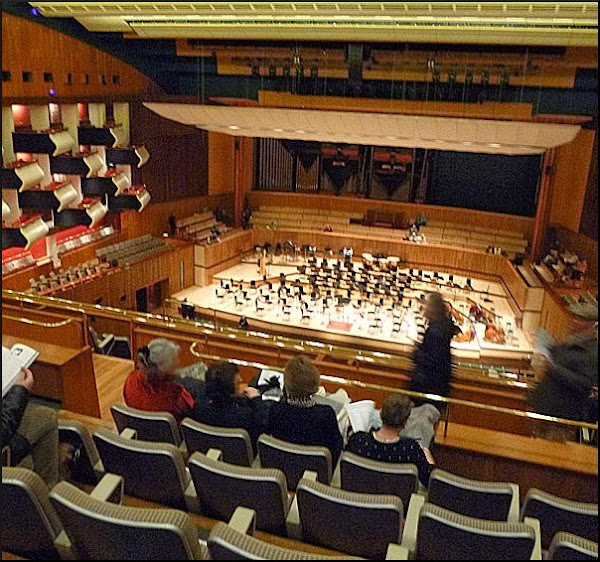Are concert halls half-empty or half-full?
Several articles have appeared here over the years about the 1980 Musicians' Union strike which forced the cancellation of part of that year's Proms season. This successful strike action reversed the BBC's proposed disbandment of the BBC Scottish Symphony Orchestra. Comparisons have been made elsewhere between the present cuts and the 1980 strike. But this comparison is misleading. The proposed 1980 cuts were purely driven by cost saving. The current cuts are driven by the need for cost savings coupled with falling demand for classical music caused by cultural changes.
Unfortunately that falling demand is all too evident. 30 years ago in London the main classical venues would have performances from a range of ensembles on practically every night of the week. Even before the pandemic those venues were dark for many nights, or were presenting non-classical music. The header photo comes from my 2013 article titled 'Why was Marin Alsop's London concert half empty?'
What troubles me is the refusal of anyone in the classical industry to acknowledge this inescapable fall in demand. The proposed cuts are almost certainly misguided. The BBC Singers were an easy and wrong target for cost saving, and dispensing with them liquidates an important BBC USP while failing to significantly reduce supply. Cutting orchestra ensemble size by 20% similarly does not reduce supply, it simply impacts on repertoire choice.
But because of falling demand cuts must happen. I fear that future cuts will be even more severe than the present proposals and, very sadly, will probably involve the closure of complete orchestras.
The leading BBC-contracted conductors should stop sending protest letters and start constructively discussing how the classical industry can cope with irreversible cultural change. Classical music is a great and indispensable artform, and it must and will survive. Concert halls are not half-empty, they are half-full. But denial of surplus capacity in the industry is foolhardy. Classical music needs to go on a diet to stay healthy and thriving. Agreeing on a diet plan is the priority, not protests and petitions.











Comments
No diet plan, no protests nor petitions will prevent further slow death from starving.
Priority should rather be to resuscitate the dying routine with the novelty, relevance, interest, adventure and thrill that attracts public and fills halls. Some try and even manage to do this. And only those will survive.